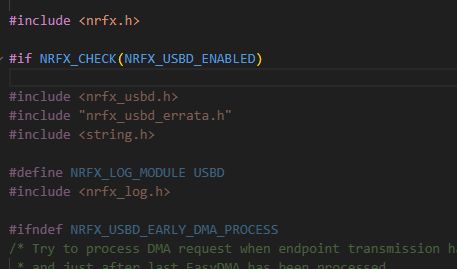Hello,
I'm using Zephyr 2.6.1 and nRF5340.
Tried to include in my project the NRFX driver for USB and I'm currently not able to find an enabling option for that.
In the prj.conf seems that is not recognized (available) any entry for that (i.e. following the naming rule CONFIG_NRFX_USBD and looking into Kconfig file in C:\ncs\v2.6.1\zephyr\modules\hal_nordic\nrfx), and obviously the code in the nrfx_usbd.c is not enabled causing errors:

How can I enable the nRFX driver?
Thank you




